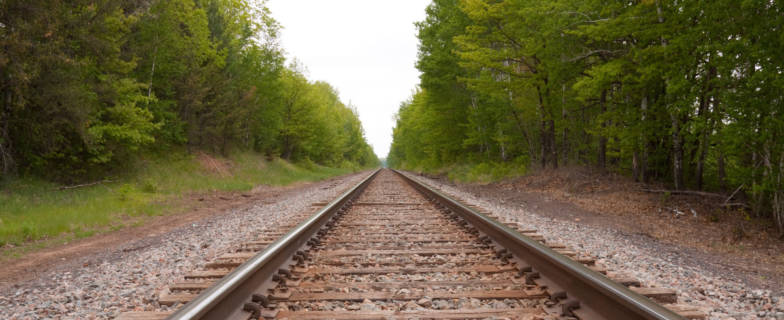Schlichter Bogard Obtains Settlement that Highlights Importance of Creative and Diligent Advocacy
Schlichter Bogard & Denton is pleased to announce that we have obtained a substantial settlement for an injured railroad worker. In this case, the conductor was riding the side of the forward most railroad car while it was being shoved as part of a train over a public grade crossing at a relatively low rate of speed when a motorist tried to cross the tracks in front of the train, resulting in a collision. The conductor was thrown from the train and into the car, sustaining a traumatic injury which required surgery and extensive therapy before he was able to return to work. A claim was filed against the motorist for failing to yield the right of way. A settlement was reached with the motorist and her insurance company that fully compensated the injured worker. Later, another claim was filed, this time against the railroad employer. Our firm asserted that the railroad’s practice of requiring crews to ride on the side of trains through crossings was unsafe, particularly where, like here, there were no crossing gates. Alternatively, we argued that the railroad should have provided a flagger to protect the crossing. Ultimately, the railroad agreed to pay an additional substantial amount to settle the claim. Moreover, the railroad is now reevaluating its policies and taking steps to reduce the risk of future injuries, something that would be unlikely had we not pursued this claim. Some additional takeaways from this case: Crossing collisions more commonly occur at high speeds with commercial motor vehicles that fail to look both ways before crossing or that try to race across the tracks before the train arrives. State and federal laws require motorists to yield the right of way to trains and the motorist is almost always at fault when a train collision occurs. But, what if the train crew worker is seriously injured and permanently disabled, and the motorist does not have insurance or it is limited? In such a situation, the railroad worker may face a disastrous situation and could be undercompensated unless a claim can be made against the railroad. Our firm has represented railroad workers for decades across much of the U.S. in a wide variety of crossing collision cases and has had success in arguing several theories for which railroads can be held accountable. In addition to the theories noted above, we have successfully argued that railroads know crossing collisions will happen, even if they cannot predict when. Yet, they generally fail to train employees how to protect themselves and minimize the risk of injuries. Instead, railroads claim that there are too many types of collisions and employees should look out for themselves. However, when injuries occur, the railroad often argues that the worker did something wrong. We have also argued that the failure to timely implement/activate positive train control can cause crossing collisions, in addition to train-on-train collisions. In some cases, large commercial vehicles get stuck on humped crossings, and yet the railroad’s failure to post a hotline number to call and alert a dispatcher to stop trains was shown to be a contributing cause of the collision. Similarly, unsafe crossings and poor vegetation maintenance by the railroad can make a crossing more dangerous, as does the failure to install crossing guards and flashing lights. Long ago, we successfully argued that locomotive designs should be more crashworthy and crash resistant. Ultimately, the FRA did enact regulations requiring such protections. Finally, poor train make up, including placing empty railcars immediately behind the much heavier locomotives can cause relatively minor crossing collisions to become much more severe—even deadly. Thus, while it can be challenging to hold railroads responsible for employee injuries caused by a negligent motorist at a grade crossing, creative and diligent advocacy by railway safety attorneys like those at Schlichter Bogard & Denton can balance the scales of justice and hold railroads accountable for their share of responsibility and to compensate injured workers.
Article by Nelson Wolff, Partner
In our Railroad Injury e-newsletter exclusively covering railroad-related topics, attorneys from Schlichter Bogard & Denton’s nationally recognized team discuss, among other things, railroad workers’ rights, federal railroad laws, recent rulings impacting railroad workers, and firm news. Click here to subscribe.
The information contained in this newsletter is provided for informational purposes only and does not constitute legal advice. Reading this newsletter and information contained herein does not constitute formation of an attorney-client relationship. Every potential case must be assessed in accordance with its unique facts and circumstances. If you believe you may have a legal claim, please request a free, confidential case evaluation with our team today.
